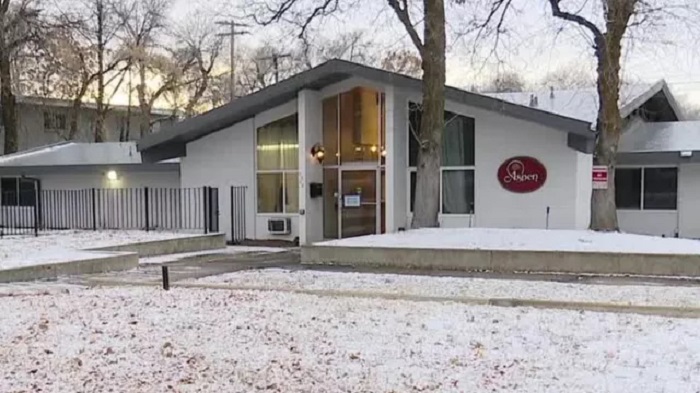Ogden, Utah — A new bill introduced in the Utah State Legislature is causing concern for the Weber Housing Authority, as it seeks to advance its project aimed at permanently housing individuals who are chronically homeless and disabled. The project, located in a former assisted living facility in Ogden, has encountered delays, raising questions about the future of affordable housing initiatives in the area.
In 2022, the Weber Housing Authority acquired the building that once housed Aspen Assisted Living with plans to repurpose it for housing those in need. However, the project has run into a roadblock after the housing authority failed to engage with Ogden City’s administration before moving forward with plans. According to Andi Beadles, executive director of the Weber Housing Authority, while the team spoke with the planning department, discussions with city officials have been limited. As a result, the Ogden City Council must approve the project before it can move forward, given that the property is within the city limits.
“We’re still very optimistic that we can come to a workable solution,” Beadles stated, though the project currently remains at a standstill.
Ogden City officials, including Mayor Ben Nadolski, have expressed concern over the proposal due to the area’s already high concentration of similar housing projects. “The potential is to put another type of housing within the same area that already has a huge concentration of the same types of projects,” Mayor Nadolski explained. He emphasized that other areas of the city may be more appropriate for such housing, especially as Ogden works to balance housing needs with neighborhood stability.
In addition to local concerns, House Bill 532, introduced last week in the Utah State Legislature, has further complicated matters. The bill, sponsored by Rep. Ryan Wilcox (R-Ogden) and Sen. Calvin Musselman (R-West Haven), seeks to clarify existing statutes to ensure better collaboration between housing authorities and local governments. Specifically, the bill would restrict housing authorities from transferring property to third parties, a move that has raised alarms for Beadles and her team.
Beadles has voiced opposition to the bill, citing its potential to hinder the flexibility of housing authorities in carrying out their projects. “The not-in-my-backyard mentality that this will, and the spirit of that, will spread throughout the state,” she warned, expressing concern that the bill could set a precedent for blocking future housing projects.
While the Weber Housing Authority stands opposed to the bill, Mayor Nadolski supports its intent. “Moving forward, the city absolutely has to have a seat at the table,” he said. He believes the bill will help streamline processes and ensure that cities are actively involved in housing decisions. Nadolski also noted that the city is committed to finding a solution for the Aspen project, potentially by purchasing the property from the housing authority and utilizing it for neighborhood stabilization efforts.
“The city is exploring opportunities to purchase the property from the housing authority,” said Nadolski. “If we were able to purchase it, it would be a good location for us to do some of the neighborhood stabilization projects we’ve done in the past.”
As the situation unfolds, both the housing authority and the city of Ogden are working to find a way forward that addresses the urgent need for housing while ensuring that community interests are respected. With the housing authority’s future projects at risk, the outcome of the bill and ongoing discussions will likely have significant implications for affordable housing initiatives in the area.
The tension between local governments and housing authorities is not unique to Ogden, as similar debates are playing out across the state. With a rising demand for affordable housing and increasing concerns about over-concentration in certain neighborhoods, finding a balance between development and community impact remains a challenge for Utah’s cities and housing authorities alike.

